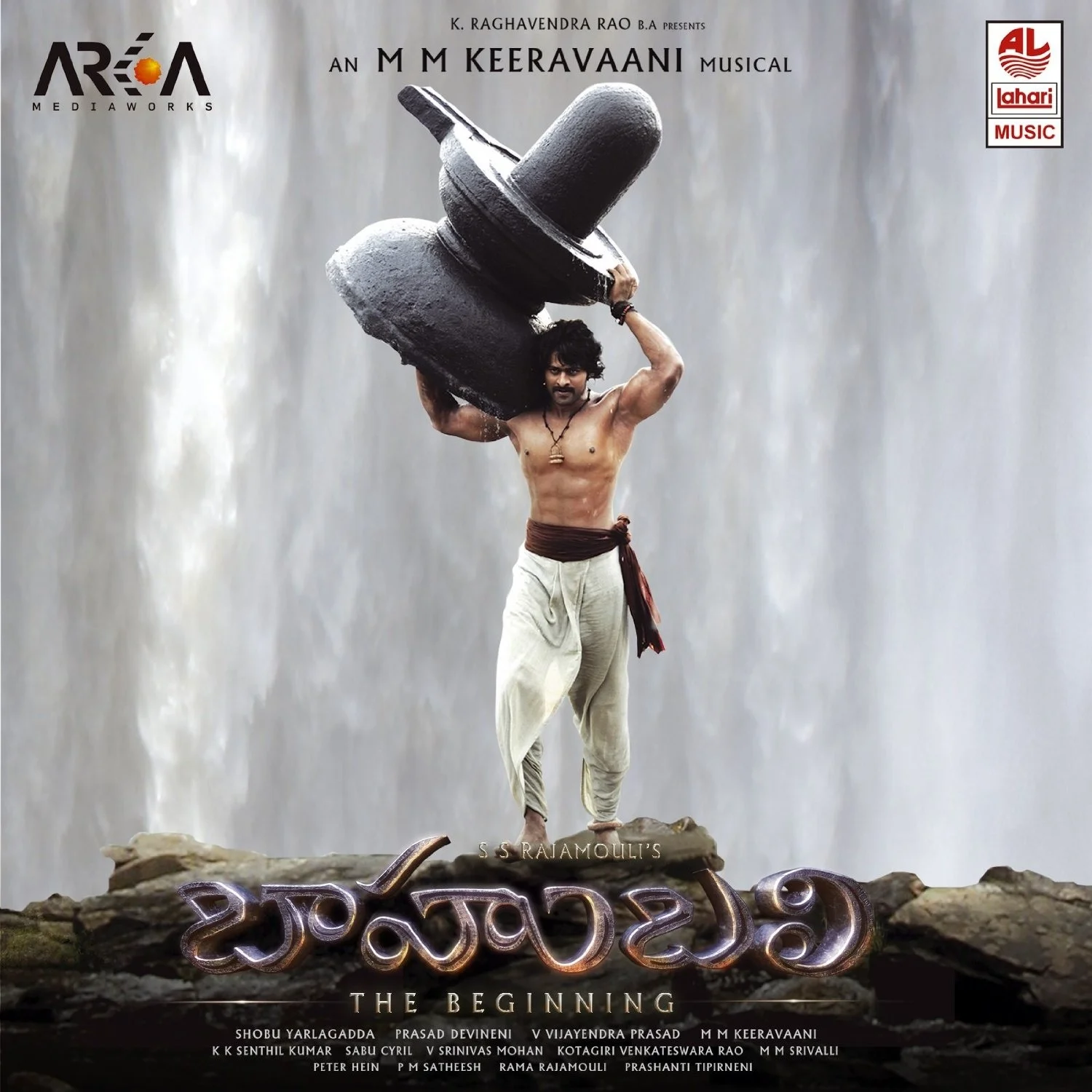Baahubali: The Beginning is an amazing Indian cinematic experience. I was hooked to this movie since I‘ve seen the trailer for it. And honestly, don‘t tell me you wouldn‘t check it after seeing it for yourself:
So, after its release in Blu Ray format it went beyond saying it landed on my shelf. But today I‘m not interested in the movie itself (although I‘m gonna re-watch it soon, when getting the second part of the movie, in a great 6-hour long marathon and I‘ll attempt to write a review of it as well), today I want to talk about the soundtrack to this movie.
First thing I need to mention is quite important. The movie exists in three different language versions – original Telugu, dubbed into Hindi and Tamil. And I guess it does matter which version one watches, as the songs are true earworms and although I don‘t understand a word, the phonetics have stuck with me since the very moment I‘ve listened that soundtrack. So Telugu version is the one I’ve chosen.
Only little over 28 minutes long, the songs are all heard in the movie itself, so as a fan this great cinematic experience I can envision parts of the movie these songs belong to.
Starting with Pachcha Bottesi, the second longest track, this is a nice duet between Karthik a Damini, and it immediately evokes the romantic garden scene between Prabhas and Anyushka. If you don‘t like this one, you have no love for melody and harmony. Shame on you!
Second track, Jeva Nadhi, is the shortest one, clockin under 2 minute (1:41), with a crying violin and a beautiful female voice by Geetha Madhuri evoking the sadness and emotional pain, and watching through the window the autumn taking over summer, it fits perfectly even outside the movie. Alas, great stuff doesn’t last too long!
Dhivara, by Ramya Behara and Deepu, is presented twice, in a Telugu version, which is the longest track of this soundtrack, and in an English version, but I do prefer original languages’ version (be it Hindi, Tamil or Telugu) over the English. And I don’t care if they sing about a curry recipe or whatever else, it just sounds right in the exotic language as these are.
Satya Yamini brings us to Mamatala Talli, which starts in a nice romantic mood, but soon enough changes into a warlike chant with supporting male voices, a great sounding drumwork and flutes. Add to it a sound of clashing sabres and you have a instant catchy song you will revisit again and again. Truly one of the highlights of this soundtrack (if I have to pick one, but believe me, it’s very hard).
M. M. Keeravani presents his song Nippule Swasa Ga, another tense sounding warlike song, with trumpets sounding, drum rolling and chants leading the listener to the climax of the movie scene.
Manohari, the next portion of the soundtrack, is another duet, this time between Mohana Bhogaraju and LV Revanth (and in the movie it’s a very nice dance number as well). Great tune with the traditional instruments and the female voices are just fantastic, you simply can’t imagine it being sung by a non-native singer.
And now the absolute highlight of this soundtrack – Sivuni Aana, by M. M. Keerevani and Mounima. I freely admit it stuck in my head because of the great scene it’s tied to in the movie, but even on its own it’s a pretty catchy tune. Check for yourself:
The last one is Dheevara, already mentioned English version of the original Dhivara, but this one is cut to 3:10 instead of original 5:29, and it’s also a different musically, so don’t skip it!
All in all, this one is one of my favorites in world music, there is no doubt about it. Absolutely fantastic and dreamlike, it’s prompted me to check also other modern movies from India. And believe me, there are gems to uncover!


